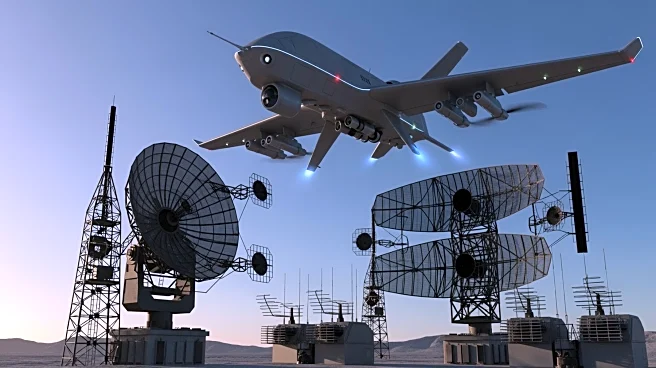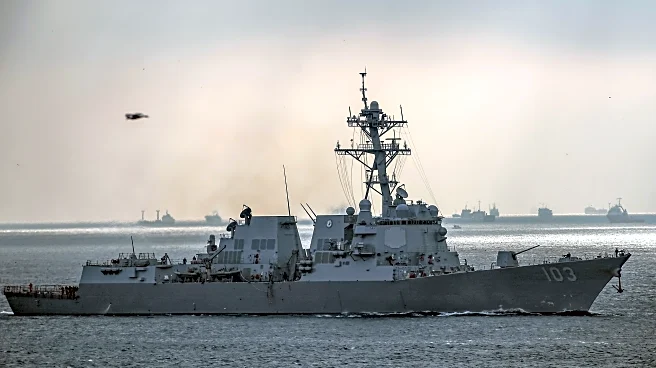What's Happening?
Ukraine has conducted nearly 160 successful strikes in 2025 against Russian oil extraction and refining facilities, leading to significant fuel shortages and a 37% drop in refining capacity. These facilities are considered legitimate military targets
by Ukraine, as they contribute significantly to Russia's defense budget. Despite gaps in Russia's air defenses, Ukraine lacks the weapons to fully exploit these vulnerabilities. While Ukraine has had success with long-range drones, they do not match the impact of cruise missiles. Ukraine is in talks with the U.S. for additional capabilities, but details remain sensitive.
Why It's Important?
The strikes have weakened Russia's ability to sustain its military operations, impacting its defense budget and infrastructure. The situation highlights the strategic importance of air defense systems and the ongoing challenges faced by Russia in protecting critical infrastructure. For Ukraine, the ability to exploit these vulnerabilities could shift the balance in the conflict, but it requires more advanced weaponry from Western allies. The reluctance of countries like Germany to supply certain missiles underscores geopolitical tensions and the complexities of international military support.
What's Next?
Ukraine continues to seek advanced missile systems from Western allies to enhance its military capabilities. The U.S. and Germany's decisions on supplying weapons like Tomahawk and Taurus missiles could significantly impact Ukraine's ability to exploit Russian air defense gaps. The ongoing negotiations and potential deliveries will be closely watched by international stakeholders, as they could alter the dynamics of the conflict.





![Daily Slop: 12 Feb 26 – New Commanders OC David Blough: “How do we get Terry [McLaurin] 10 targets a game?“](https://glance-mob.glance-cdn.com/public/cardpress/binge-magazine-card-generation/spaces/US/en/sb-nation/images/ppid_2cf3d240-image-177091266842313096.webp)










